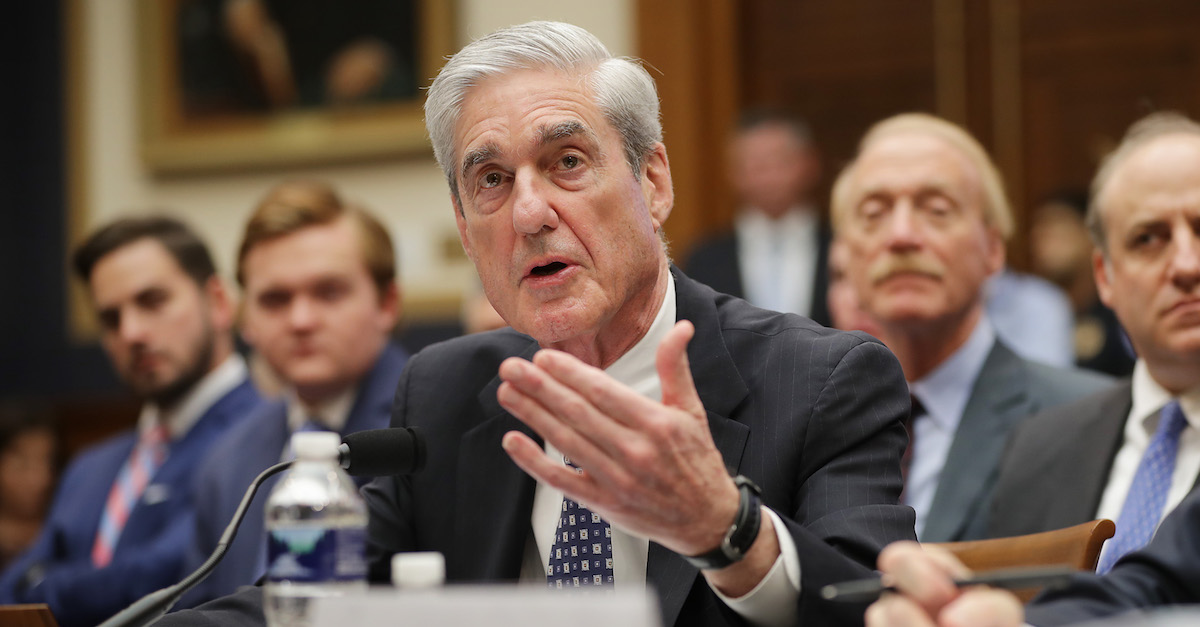
A federal judge on Monday granted a Justice Department request to delay providing detailed answers to questions about former Special Counsel Robert Mueller’s full, unredacted Russia report.
The judge, Reggie B. Walton, previously read the entire Mueller report and ordered the DOJ to answer a spreadsheet full of questions about the report’s publicly hidden contents. Responses are now due next Tuesday, July 21, one week after the previous deadline.
The responses, if adequate, may render a scheduled hearing unnecessary in cases filed by the Electronic Privacy Information Center (EPIC) and Buzzfeed News, which seek to obtain the unredacted report in its entirety.
In a motion, the DOJ said that it sought additional time because answering the judge’s questions required “consultations with numerous Department components, including the Office of Information Privacy, the National Security Division, the Federal Bureau of Investigation, and U.S. Attorney’s Offices.”
“[A]dditional time is necessary because the majority of Court’s inquiries concerning the redactions require the Department to consult with various entities with equities in the information at issue, both within and outside the Department,” DOJ continued. “The Department has received information from some, but not all, of the entities. Once the Department has completed its consultation with these entities, the Department needs time to compile information received from those entities into a detailed response that addresses all of the Court’s questions. Those entities then need time to review the compiled draft responses before the responses are filed under seal with the Court.”
A hearing to go over the DOJ’s redactions in the Mueller Report is scheduled for Aug. 17 at 10:00 a.m. However, the DOJ’s motion suggests the hearing may not be necessary assuming its responses to the court’s questions are acceptable. The DOJ said that it is the department’s “goal” to provide “fulsome responses to the Court’s questions” to remove the need for the hearing.
The redactions in the Mueller Report are long been controversial. The DOJ cited the need to protect intelligence sources and materials, information on uncharged third parties, information which could jeopardize future prosecutions, and grand jury information. But Judge Walton has expressed “grave concerns” about the DOJ’s “objectivity” under Attorney General Bill Barr’s leadership.
Walton said Barr’s “lack of candor” about the content of the Mueller Report “call[ed] into question Attorney General Barr’s credibility and in turn, the Department’s representation that ‘all of the information redacted from the version of the [Mueller] Report released by [ ] Attorney General [Barr]’ is protected from disclosure by its claimed FOIA exemptions.”
[photo by Chip Somodevilla/Getty Images]